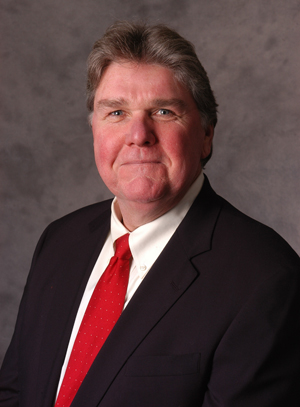By LAURA SANICOLA

Dr. John Harrington, professor and current dean of faculty of arts and sciences at Fordham College at Rose Hill, has been appointed to replace Dr. Michael Latham as dean of the college, effective July 2014. Latham, who will be the new dean of the college and vice president of academic affairs at Grinnell College, announced his departure from his position at Rose Hill in December 2013.
Harrington describes the position of interim dean as a “stewardship” job, necessary for maintaining the progress that Michael Latham made and preparing the college for the next permanent dean of students.
“I won’t begin any giant new construction, but I will be trying to prepare the college to find the person it needs as the next dean,” Harrington said. Previous deans of Rose Hill include Dr. Brennan O’Donnell, president of Manhattan College, Rev. Jeffrey P. von Arx, president of Fairfield University, and our own Rev. Joseph M. McShane, S.J., president of Fordham University.
“Dean of Fordham College at Rose Hill is a highly visible and prized job, especially among the American Jesuit Colleges and Universities (AJCU),” Harrington said. “A distinguished series of people have held this position, which is a testament to the importance of this job and what it truly stands for.”
Before assuming his post as dean of faculty of arts and sciences in the summer of 2009, Harrington worked as dean of humanities and social sciences at Cooper Union in New York City and dean of humanities, arts, and social sciences at Renesslaer Polytechnic Institute in Troy, N.Y.
“I can’t say enough about the tremendous work that Dean Latham has done in the past five years,” Harrington said. “He did a fantastic job and will really be missed in a big way.”
Latham and Harrington both began as interim deans in 2009, developing a three-part focus on the sciences, international education and the core curriculum. As the dean of various institutions throughout the years, Harrington acknowledged that each university is unique and therefore needs vastly different things. “Rhode Island Polytechnic Institute really needed humanities and arts. Everyone is really interested in developing sciences at Fordham, and that’s not what needed to be developed at RPI.”
With a solid core curriculum already in place, Harrington and Latham turned their attention towards developing the sciences at Fordham. “Science proves to be a growing field, and faculty in all the departments at Fordham recognize this. More and more students are enrolling in our science courses each year. This is what students want and this is the direction we must take in the coming years.”
Current initiatives include the expansion of undergraduate research opportunities at Fordham and the launching of new science majors, such as Integrative Neuroscience, to meet the demands of student interest.
The development of international education has been geared towards the expansion of Fordham’s Centers in London and Pretoria, which allow students to learn from and integrate themselves into other cultures, as opposed to being surrounded primarily with other American students studying abroad.
“We have 180 students studying in our London Center in the fall of 2014,” he said. “Two years ago that number was 30.”
According to Harrington, the biggest challenge that Fordham faces is the same as that of many other universities in this day and age: the cost of education is continuously rising and the ability for people to pay for such education is decreasing. Although there is no clear solution in sight for this economic conundrum, he insists that Fordham is well-positioned as a Jesuit school in New York City.
“People recognize Fordham for the values it upholds,” Harrington said. “It is a university with a curriculum and community dedicated to service and awareness, one located in the heart of the world. That is something other schools just can’t boast about.”
With so many opportunities available to Fordham students to grow in their fields of interest, Harrington believes it is the job of the student body to be participatory.
“Be vocal about what interests you and what you want out of Fordham. When you’ve found something, focus on it and commit to it,” he advised. “A transformative education is possible, and it is what we want for our students. Engage yourselves.”
Laura Sanicola is Assistant News Editor at The Fordham Ram.







































































































































































































